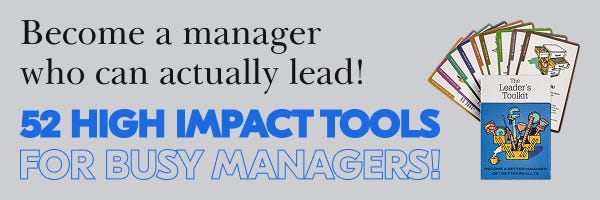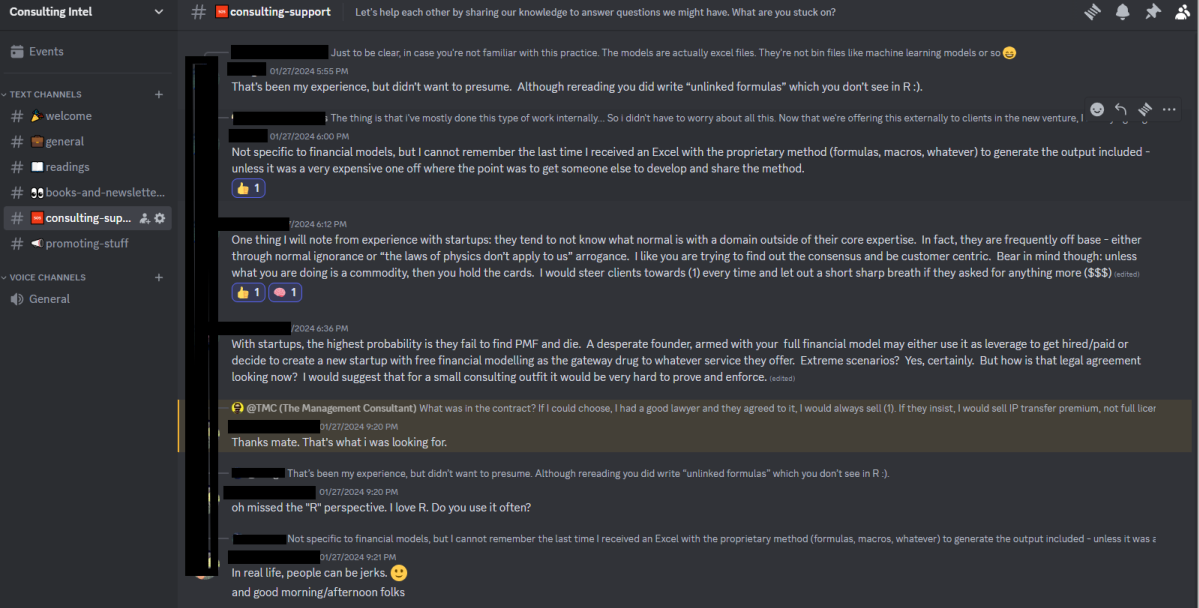On the non-fungibility of great consultants
All machines have swappable parts, but how to become the piece that warps the whole thing if removed?
Hello to the 3,752 subscribers who read Consulting Intel!
Somewhere in the HR database of a large consulting firm, your name sits like a SKU.
You are “Senior Consultant, Band 3B, Financial Services practice, Chicago, IL, USA.” In other words: you are a fairly expensive human Lego brick.
You are interchangeable. You are replaceable. You are fungible.
Let us not kid ourselves: the entire business model of consulting is predicated on the ability to swap you out without the client noticing. If you fall sick, or go for an extended holiday (by the way, who approved that?), insert another jargon-speaking analyst with passable teeth, a white shirt, a reasonable degree, and a clean LinkedIn headshot.
Don’t take that as an insult. This is a feature of the system.
A consultant with any level of taste for legacy, leverage, or liberty should have one and only one objective: to become non-fungible. A non-fungible consultant is the one who, if removed from a project, causes the whole thing to wobble like a Jenga tower with a missing mortgage financial model.
Fungibility is safety. Non-fungibility is power.
Fungibility is the default mode
A fungible consultant is polite, well-groomed, MBA-scented, and terrifyingly easy to replace.
They follow the playbook, dress like the slide deck, and say things like “we’ll take this offline” while privately dying inside. Their career progresses as expected: multiple promotions, burnout, divorce, mid-life renaissance via executive coaching, repeat.
They are respected, sometimes, but rarely remembered.
They never make enemies, because they never made a dent.
Non-fungibility is your end-game
A non-fungible consultant, by contrast, is a statistical outlier disguised as a team player. They are not “rounded” but spiky, and carry such specific gravitas that meetings start when they walk in.
You do not assign them to a project. You build the project around them.
Non-fungible consultants are typically hard to manage, inconvenient, allergic to slide templates, but when things break, the client is angry, the CTO is quitting, and the integration is failing, they are the ones you call. They do not have all the answers; what they have is a weird knack for knowing which questions still matter when the building is on fire.
Non-fungibility is, in my definition, about being irresistibly useful in very particular contexts.
Traits of the non-fungible
Here’s where most career advice starts lying, so let me detonate a few clichés:
You do not become non-fungible by being “well-rounded.” That makes you a tennis ball: smooth and forgettable. Generalization is for interns, so look to dominate a sector. Specialize first, then broaden up later in your career.
You do not get there by “networking.” You get there by being impossible to ignore. By doing work that whispers, “no one else could have pulled this off.” People will start remembering your name in rooms you are not in, and you will start getting interesting phone calls.
You do not become valuable by being busy. You become valuable by being right when it matters, and useful when it hurts. Most consultants are sheep with Outlook calendars, and the funny bit is that they even brag about it! Busyness is NOT effectiveness: get busy when you have to, not when somebody else (and their three working neurons) wants you to be.
You are not non-fungible because you “know things.” This is tricky, but, by now, more and more people are realizing that knowledge is cheap. Your preferred LLM can spit out more ideas in 60 seconds than you think in a month. Your preferred LLM is more knowledgeable than you, but cannot produce contextual and practical insight under pressure. That’s the job for the non-fungible consultant.
The path to non-fungibility
So, how do you reach the elusive non-fungible status? I will give some ideas in this paragraph, but I doubt it will be exhaustive (please share this post and add your thoughts in the comments):
Find the tension no one wants to touch. The space between strategy and delivery. The place where the vision is sexy but the backend is rotting. Plant yourself there and start decoding/translating. Most consultants want clean problems. Non-fungible ones tackle the uncleanable ones.
Outlearn your own capability. If you are in a commercial role, understand technology better than the delivery team. If you are technical, learn to write board papers. You do not need to become both, but you need to cross the river and shake hands.
Ship something that matters. Internal accelerator, AI prototype, client escape route from a failed vendor, anything that has your fingerprints and leaves a trace. Even a failure, if honest and public, is more memorable than 6 months of slide-choreography using difficult words to express otherwise simple concepts.
Say one uncomfortably true thing in every meeting. This builds a personal brand faster than ten “thought leadership” articles on LinkedIn. If you pay attention, in each meeting, there is always that one thing that everyone is afraid to name. People dance around the topic, and use convoluted communication to avoid being too direct. Be the one who names it, then helps solve it.
Make yourself a vector. Start something that scales you. Could be a method, a tool, a recurring client asset, at a minimum an extended team. You are not a person anymore, but an API that connects ideas, people, problems and solutions: ingest information and output actions.
Guard your weirdness. I read this in a book, but (I’m an idiot) I did not write down which book. Anyway, the cool statement was: Conformity is the price of admission, but distinctiveness is the price of escape. What does this mean for you? It means you must always have an angle, a tic, a mental model that others mock until it prints money.
But enough inspirational words for now.
Here’s where many talented consultants fall into the trap.
🚨 Elephas: The Knowledge Tool Built for Consultants
Are you drowning in client research, frameworks, and deliverables?
Elephas is the Mac knowledge assistant that helps consultants organize and access information instantly. Store all your client materials in one searchable brain, create professional diagrams with a click, and transform rough notes into polished deliverables.
What makes Elephas perfect for consulting work:
Powerful search across all your knowledge
Works offline for complete client confidentiality
Creates mind maps and diagrams automatically
Stop wasting billable hours hunting for information. Elephas helps you deliver higher quality work in less time - exactly what you need when scaling your practice.
Want to see how the best consultants stay organized?
They become so spiky, so allergic to bullshit, so proud of being the smartest rebel in the room… that no one wants to work with them twice!
Congratulations. You are now a high-IQ liability.
Being non-fungible is not the same as becoming difficult.
Being non-fungible means becoming distinct and dependable, not (just) a rainmaker, but someone others would gladly be stuck at an airport with. You want your presence to signal: This person sees things I don’t, and will not let me walk into a buzzsaw without warning me.
Trust is the multiplier. If you cannot be trusted, you are a ghost, no matter how brilliant. And trust does not come from always being right. It comes from showing up when it matters, carrying the weight during ugly weeks, saying “I’ve got this” and meaning it.
Try to become the useful, reliable outlier who reads the room and still dares to say the thing that must be said, but who also stays late to clean up the mess when others conveniently “have prior commitments.”
Trusted non-fungibility is career sovereignty. That is where you stop being managed, and start being consulted.
What did I miss?
Ciao, until next time! 👋
✍ The Management Consultant
Get 10% OFF LEADERTOOLS using the Consulting Intel discount!
The Leaders Toolkit is a deck of 52 tools, frameworks and mental models to make you a better leader. Each card is highly actionable with zero fluff or jargon.
These tools are used by people working at some of the best run companies in the world such as Amazon, Hubspot and Google. Grab your Leader’s Toolkit at LeaderTools.co
Use code CONSULTANT10 for 10% off.
PS: If you like this newsletter, I have one huge favor to ask.
Share it around with friends, family and colleagues.
This is the most effective way to support me (…and to keep me motivated to continue writing 😁).
Thank you 👇👇👇
🎯 INTERESTING SH*T
A couple of things I found on the internet that you may like…
After seeing so much hype about the book, I finally read The Creative Act by Rick Rubin. Unfortunately, most of the book did not survive that hype in my view. I found much of the “advice” to be overly generic, with the occasional gem sprinkled across the pages. It is not a book I would recommend…
… On to a book that I would recommend 🤣, I have almost completed the editing of my first manuscript, and I’m now waiting for my designer to share a draft cover. I’m still on track to publish in June.
Very excited, and really looking forward to sharing it with all of you very soon.
👀 JOIN THE DISCORD SERVER
If you like this newsletter, you will love our Discord Server.
In there, you will find a tight-knit community of 210+ management consultants from all over the world discussing real-life challenges, giving each other support and recommending the good stuff to keep our knowledge top notch.









Honestly, not convinced such non fungible people exist. Partly because the person that is essential to one project may not be such a perfect fit for the next project. And partly from experience. We had people that were considered indispensable. Sooner or later they left anf life just went on. Maybe a feature of being in a very large organisation.
The paradox: Non-Fungibility is not really anti-fragile. But it is somewhat in the same family of ideas.
The main issue with Non-Fungibility is legibility.
People who don't get it massively outnumber those with the necessary perspective that can detect and nurture it when necessary.